Hey there! Ever wonder why learning about money is super important, especially when you’re just starting out in school? Well, it’s like this: understanding how money works is like having a superpower. And guess what? We’ve got some awesome games that make learning about cash fun and easy. So, whether you’re in the classroom or chilling at home, get ready to play your way to becoming a money master!
Table of contents
Game 1: “Money Masters Adventure”
Hey there, parents and educators! Today, let’s dive into the exciting world of educational games and shine a spotlight on one gem that’s capturing the hearts and minds of elementary students everywhere – “Money Masters Adventure.”
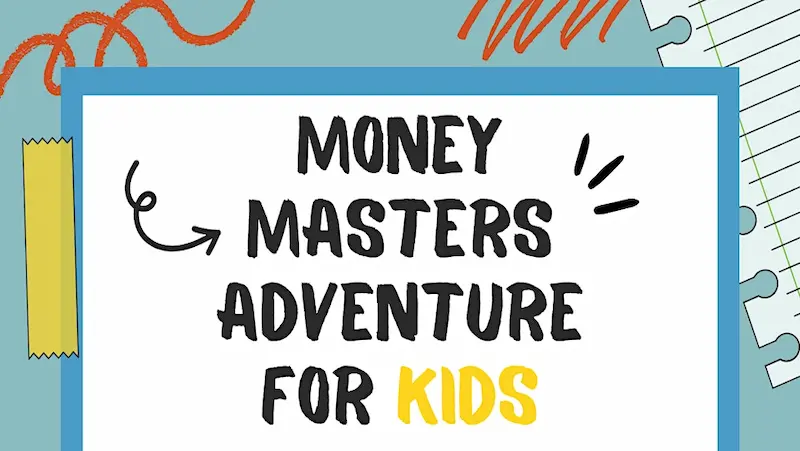
Now, what makes this game so special? Well, let’s break it down in simple terms that even the littlest learners can understand.
1. Colorful and Captivating Design:
First things first, imagine a world bursting with vibrant colors and animated characters. That’s the visual treat Money Masters Adventure offers. The game creators understand that little eyes love bright and cheerful visuals, creating an inviting environment for kids to explore.
2. Easy-to-Understand Concepts:
Money matters can be tricky, but not in Money Masters Adventure! This game takes complex ideas about money management games for youth and simplifies them into bite-sized, easy-to-understand pieces. From counting coins to understanding basic financial concepts, the game breaks it down in a way that’s both educational and entertaining.
3. Interactive Challenges:
What’s learning without a bit of challenge, right? Money Masters Adventure doesn’t just hand out answers; it lets kids engage in interactive challenges. These challenges keep them on their toes, making learning feel like an adventure rather than a chore.
4. Real-World Scenarios:
Kids love to feel grown-up, and Money Masters Adventure taps into that curiosity by presenting real-world scenarios. From running a lemonade stand to managing a virtual store, the game introduces kids to practical money situations, teaching them skills that extend beyond the screen.
5. Positive Reinforcement:
Every small victory counts! Money Masters Adventure is built on a foundation of positive reinforcement. Whether it’s solving a problem or making a smart financial decision in the game, kids receive encouraging feedback that boosts their confidence and motivates them to keep going.
6. Customizable Avatars:
Who doesn’t love a bit of personalization? In Money Masters Adventure, kids can create and customize their avatars. This not only adds a fun element but also helps them feel more connected to the learning experience.
7. Team Play:
Learning is often more enjoyable with friends. Money Masters Adventure includes a team play feature, allowing kids to collaborate and learn together. Teamwork not only enhances the gaming experience but also teaches valuable social skills.
Game 2: “Cashville City Builders”
“Cashville City Builders,” a game that’s not just about constructing cities but also building a foundation for learning among our elementary school champs.
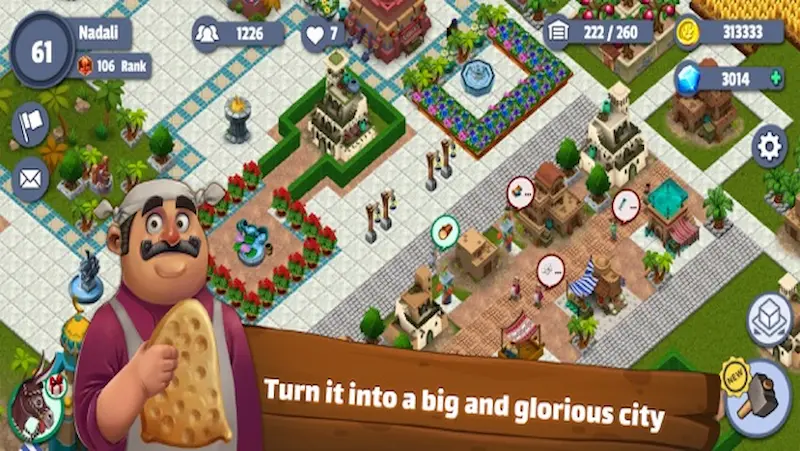
1. A City, Your Way:
One standout feature of “Cashville City Builders” is the freedom it gives players to create their dream city. From towering skyscrapers to cozy homes, the game lets you design and manage every aspect of your Cashville. It’s like having a magic wand to build your own little universe.
2. Learn While You Play:
What sets this game apart is its sneaky way of weaving education into the fun money activities. It’s not just about stacking blocks; it’s about learning math, strategy, and resource management. As your child navigates the challenges of building their city, they’ll be picking up essential skills without even realizing it. It’s like spinach in a delicious smoothie—nutritious and delightful!
3. Friendly Competition:
Cashville isn’t a solo project. The game encourages friendly competition by allowing players to visit each other’s cities, exchange resources, and even collaborate on projects. It’s a fantastic way for kids to learn teamwork and the joy of working together towards a common goal.
4. Quests and Challenges:
Elementary students love a good adventure, and “Cashville City Builders” doesn’t disappoint. The game is sprinkled with quests and challenges that keep things exciting. Whether it’s solving puzzles, meeting the needs of virtual citizens, or unlocking new areas, there’s always a new mission to embark on.
5. Kid-Friendly Design:
From colorful graphics to easy-to-navigate menus, the developers have nailed the kid-friendly design. The controls are simple, ensuring that even the youngest players can jump in without feeling overwhelmed. It’s like having a playdate with a game—simple, joyful, and full of laughter.
Game 3: “Dollars & Sense Bingo”
When it comes to making learning fun, “Dollars & Sense Bingo” takes the cake. This unique bingo variation has figured out the magical formula of combining the excitement of a classic game with the educational twist of money-related terms and concepts.
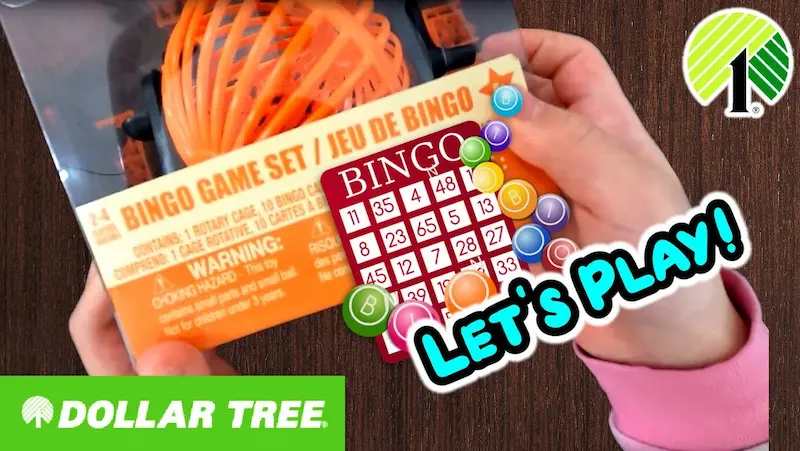
Familiarity for Friendly Learning
Bingo, a game we all know and love, has been given a smart makeover. Imagine the thrill of shouting “Bingo!” mixed with the joy of mastering money matters. It’s like having your cake and eating it too, but with a side of childrens financial literacy.
Why Stick to the Classics?
The beauty of “Dollars & Sense Bingo” lies in its simplicity. We’ve taken a game everyone recognizes and added a dash of financial education. It’s like slipping veggies into your favorite meal – you’re having a blast, and you’re learning without even realizing it.
Counting Coins, Not Just Numbers
This game goes beyond calling out numbers; it introduces players to a world of money-related terms. From understanding the value of coins to grasping basic financial concepts, every round is a mini-lesson in dollars and sense.
The Benefits Unveiled
1. Easy Comprehension: By sticking to a familiar format, “Dollars & Sense Bingo” eliminates the intimidation that can come with learning activities about money. It’s like having a friendly guide in the form of a game, making complex concepts easy to grasp.
2. Building Confidence: Children thrive when they feel confident. With this game, they not only become bingo masters but also money wizards. The sense of accomplishment from mastering financial terms boosts their self-esteem.
3. Family Fun with a Purpose: The best part? It’s not just for the kids. Families can join in, turning game night into an unintentional financial education session. It’s a win-win for bonding and learning.
Game 4: “Save-a-Lot Scavenger Hunt”
“Save-a-Lot Scavenger Hunt,” a game that’s not just about finding hidden treasures but also about discovering the value of saving your hard-earned goodies.

The Basics:
Picture this: You’re given a list of clues, each leading you to a mysterious location where a savings secret is waiting to be uncovered. It’s like a treasure hunt, but instead of pirate gold, you’re on the trail of some seriously cool savings wisdom!
Teaching the Value of Saving:
So, what’s the big deal about this scavenger hunt? Well, it’s all about teaching us the ropes of saving money. Each clue you decipher takes you closer to understanding why squirrels hide acorns for the winter – saving up for a rainy day is just smart thinking!
Imagine finding a clue that leads you to the ‘Bank of Wisdom.’ There, you might learn that saving money isn’t just about having a piggy bank; it’s also about making your money work for you by putting it in a safe place. The thrill of the hunt becomes a lesson in the financial game for students.
Encouraging Brainpower:
Now, here’s the cool part – “Save-a-Lot Scavenger Hunt” isn’t just about following clues. It’s a brainy adventure that encourages you to put on your thinking cap and solve problems. If a clue says, “Where pennies and nickels hang out,” you might need to put two and two together and head to the ‘Cafeteria’ where coins get their daily bread (or snack).
This game isn’t just a stroll in the park; it’s a challenge that sharpens your critical thinking skills. You’ll need to connect the dots, decode messages, and put your detective hat on to unlock the secrets of saving.
Why It’s Awesome for All Ages:
“Save-a-Lot Scavenger Hunt” isn’t just for the big kids; it’s fantastic for all ages, from little explorers to wise old owls. The simple yet profound lessons about saving money are hidden within the game’s twists and turns, making it an adventure that everyone can enjoy.
Game 5: “Investment Island”
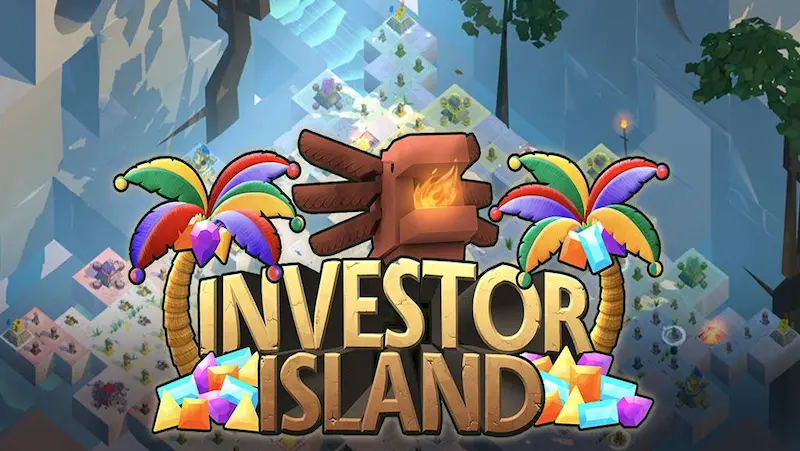
Ahoy, Explorers of Finance!
Picture this: you’re on a lush island surrounded by shimmering blue waters, but instead of palm trees and coconuts, you’re surrounded by stacks of gold coins and piggy banks. Welcome to Investment Island, where the air is filled with the scent of opportunity, and the sound of wise decisions echo through the trees.
The Treasure Hunt Begins: Virtual Investments
So, what’s the big deal about Investment Island, you ask? Well, it’s like this super cool game that helps us understand something called “investments.” Now, investments aren’t just for grown-ups with fancy suits. Nope, they’re like planting seeds of money that can grow into big, strong trees of wealth. In this game, we get to be the gardeners!
Imagine having a magic bag filled with virtual coins, and you get to decide where to plant them. Maybe in a bustling market, a tech-savvy town, or a cozy little bakery. The catch? Some places might make your coins grow faster, while others might be a bit slower. It’s like choosing the best soil for your money seeds!
Learning the Ropes: Risk and Reward
Now, here’s the really interesting part: on Investment Island, we learn about something called “risk and reward.” It’s a bit like sailing uncharted waters. Sometimes, we might discover a hidden island full of treasures, and other times, we might encounter a storm that makes the journey a bit tough.
In this game, we’re like little captains steering our ship through the seas of savings. We learn that if we take a little risk and explore new places, the reward might be even greater. It’s a bit like finding a chest of gold after braving a storm. But don’t worry, the storm isn’t too scary here—it’s just a way of learning that not every choice is smooth sailing, and that’s okay.
Critical Thinking and Problem-Solving at Play
As we explore Investment Island, we realize that it’s not just about luck—it’s about using our brains to make smart choices. We’re like mini detectives figuring out the best spots to plant our money seeds. Should we invest in a place where lots of people visit, or maybe in a place where new ideas are born?
This game makes us think hard and use our problem-solving skills. It’s not just about picking random spots; it’s about understanding the island, the markets, and where our coins can grow into strong money trees. It’s like putting together pieces of a puzzle, and with each choice, we become better treasure hunters.
Conclusion
In conclusion, these games aren’t just fun; they’re like secret agents of learning about finances! Parents and teachers, give them a shot. They’re not just games; they’re like money wizards that teach our kids how to handle their cash. So, let’s team up with these games and make learning about money a super cool adventure for our little ones!
To get your hands on more educational and free resources on coding for kids, robotics for kids, financial education for kids, etc., do check out the BrightCHAMPS Page now!
To get your hands on more such articles, educational content, and free resources on coding for kids, robotics courses, game development, etc., check out the BrightCHAMPS Blog Page now!
Frequently Asked Questions
A1. Check out games like “Piggy Bank Adventure” and “Money Bags” to make learning about money exciting for elementary students.
A2. Absolutely! “The Allowance Game” and “Save! The Game” cater to various learning styles, making financial concepts more accessible.
A3. Games like “Moneywise Kids” and “Thriving Mint” bring real-life situations into play, making money lessons practical and interesting.
A4. “Money Bags” and “The Game of Life Junior” are great for teaching responsible spending and saving in a way that clicks with kids.
A5. Yes! Games like “Moneyopoly” and “Cha-Ching: Money Smart Kids” promote teamwork, helping kids learn about money together in a fun way.

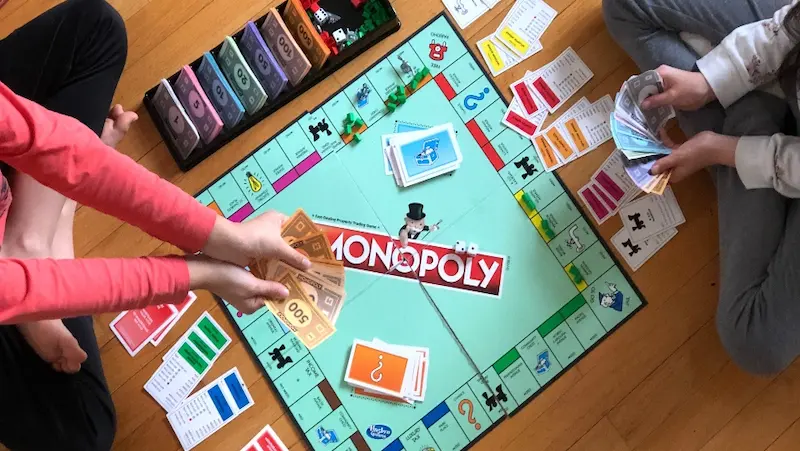
 We are an army of educators and passionate learners from BrightChamps family, committed to providing free learning resources to kids, parents & students.
We are an army of educators and passionate learners from BrightChamps family, committed to providing free learning resources to kids, parents & students.












